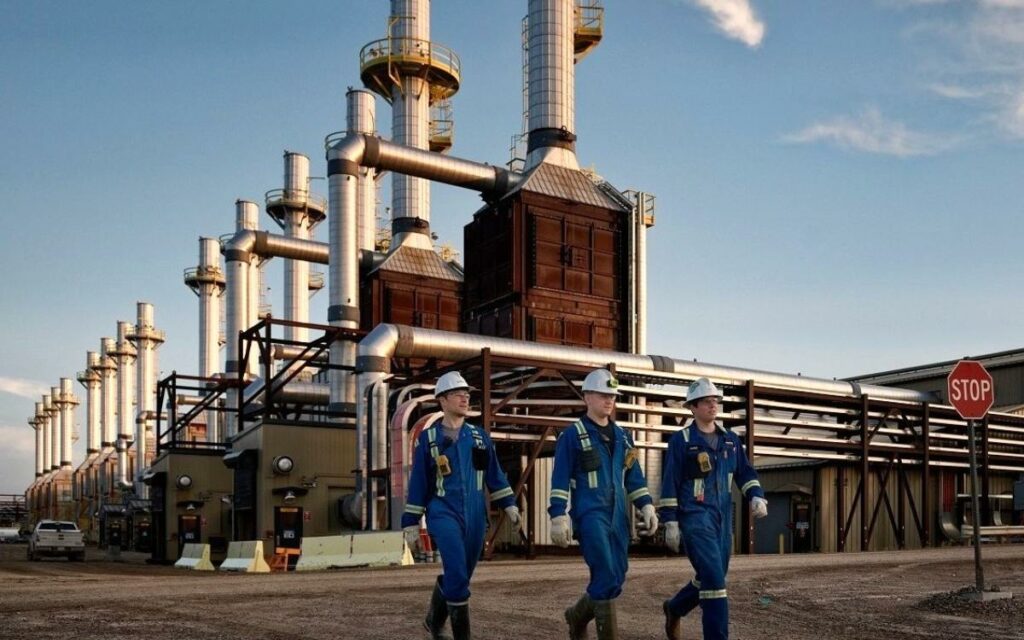
Trudeau government faces criticism over disjointed climate policies, with multiple layers of taxes and regulations raising confusion and difficulties for compliance in the energy sector. Photo credit: Cenovus Energy
The long-awaited “emissions cap” that had been foreshadowed for months by Environment Minister Steven Guilbeault was finally announced at the COP28 meeting in Dubai this past week and, as expected, the news was bad for Alberta and other fossil-fuel producing provinces, as well as for Canada. Alberta Premier Danielle Smith attended the COP28 meeting, along with a number of senior oil and gas company executives, much to the chagrin of the various environmental organizations and pro-green government officials attending from many countries. In fact, the presence of so many representatives that were pro-fossil fuels led to a call from the various environmental lobbies in attendance that future COP meetings should bar the anti-net zero folks from attending. This was a typical response from the cancel culture crowd, who believe no one should be permitted to have an opinion that diverges from theirs.
One can’t help but think that Guilbeault wanted to announce the emissions cap details at the event as a means of embarrassing Premier Smith and the oil executives at an international forum, as he has shown himself on numerous occasions to be a vindictive fellow. However, the conference led off with the Chair of the meeting, the United Arab Emirates (UAE) Sultan al-Jaber, stating “show me a phase-out of fossil fuel that will allow for sustainable socio-economic development, unless you want to take the world back into caves.” The Sultan also said there was “no science” behind calls for a phase-out of fossil fuels. As a result, this was likely the most discordant meeting of the COP parties, as previous meetings had mostly been a love-in for the climate crisis crowd attending.
As for the real impact of the emissions cap on the Canadian industry, it is a serious problem for Alberta and Canada. It has been increasingly demonstrated by the Trudeau Liberal government in recent months that there does not seem to be any cohesive plan behind their many policies to supposedly save the climate from irreparable harm. When the carbon tax was first implemented, it was sold to Canadians as the only policy that would need to be imposed as it would supposedly let the market and Canadians themselves determine their consumption level of fossil fuels and reduce emissions in the process. And even before the carbon tax was put in place, Canada already had a large number of policies at various levels of government to deal with environmental issues, and the carbon tax was layered on top of those.
Then last year, a second carbon tax called the Clean Fuel Standard was implemented that required the suppliers of fossil fuels – refineries, importers of diesel and other oil and gas products, to reduce the carbon intensity of those fuels. Now we have the emissions cap, which is to be piled on top of the existing laws, regulations and taxes to make the overall regime of climate measures even more confusing and difficult to comply with. Clearly the Liberals’ early claims that the carbon tax would be great because it was the only measure that was needed was a bald-faced lie.
It’s worth asking what the impact of this juggernaut of government dictates to the energy sector has been, especially considering that the oil and gas industry is the single largest sectoral contributor to Canada’s Gross Domestic Product (GDP) and a source of copious amounts of tax dollars to provincial and federal governments to fund services such as health care and education. The latest audit by Canada’s Commissioner of the Environment, Jerry DeMarco, which was released just last month, concluded that the federal government was going to miss its 2030 target of reducing emissions by at least 40 per cent below 2005 levels by a significant amount. The report also noted that the only notable reductions in emissions happened during the 2008 financial crisis and the pandemic, and had little if anything to do with government emissions reduction policies. So basically, if you kill the economy, emissions will be reduced. That is cold comfort to Canadians who rely on a productive economy, and a complete refutation of the Liberal claim that “the economy and the environment go hand in hand”.
The emissions reduction that Guilbeault intends to inflict upon the oil and gas sector is in the order of 35 to 38 per cent below 2019 levels by 2030. Alberta Premier Smith and fossil fuel executives state that this will necessitate production caps for the industry, which will lead to unemployment and reduced revenues for the industry and lower tax revenues for governments. Guilbeault has also claimed that the reason he has not come out with details of how these caps should take place is because “No one else on the planet has done this.” Perhaps Guilbeault needs to realize that no one else has done this because they are not insane, and that it is a hairbrained idea that will inflict even more punishment on Canadian citizens with little if any gain for the environment.

She has published numerous articles in journals, magazines & other media on issues such as free trade, finance, entrepreneurship & women business owners. Ms. Swift is a past President of the Empire Club of Canada, a former Director of the CD Howe Institute, the Canadian Youth Business Foundation, SOS Children’s Villages, past President of the International Small Business Congress and current Director of the Fraser Institute. She was cited in 2003 & 2012 as one of the most powerful women in Canada by the Women’s Executive Network & is a recipient of the Queen’s Silver & Gold Jubilee medals.






